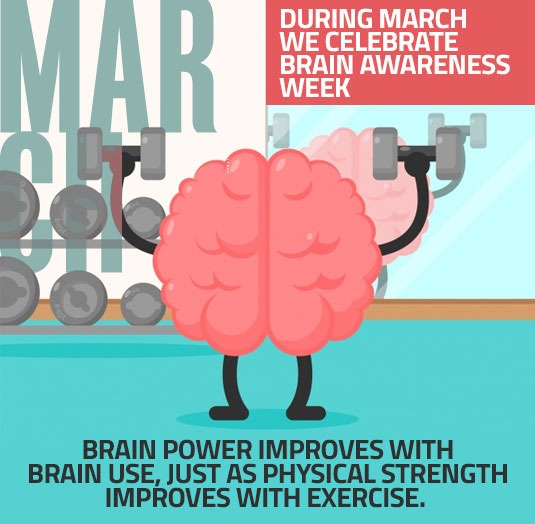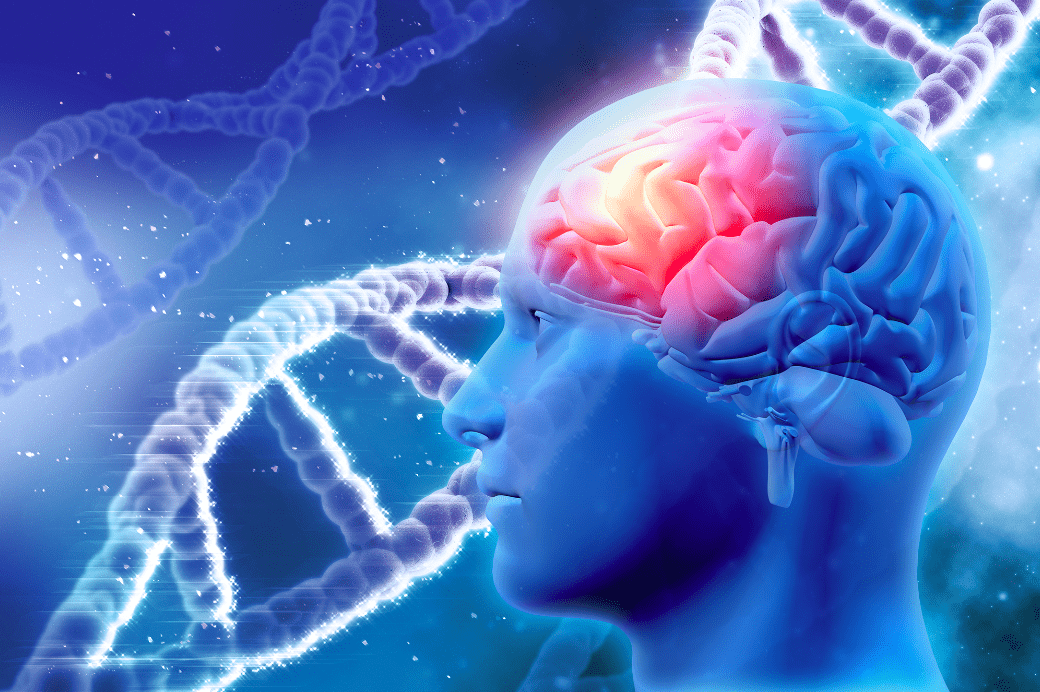March 11th – 17th, 2024 is Brain Awareness Week and, compared to other days or weeks dedicated to great causes, this week is one of the most important for many reasons. While many kick off the new year with dedication to exercise or learning a new skill, many forget that behind the scenes, for everything involved with being human, it’s our brain that makes it all happen. A healthy, stimulated and ultimately rested brain that’s kept in optimal condition, will reap the benefits of having peak use throughout our life.

Since first being established by the Dana Alliance for Brain Initiatives (DABI) in the US and Europe, the week annually has brought together many partner organizations who “brainstorm” ideas to educate the general public on best brain health practices. The global initiative has many suggestions on how to improve and maintain healthy brain function as we age.
Below are just a handful of ideas on how to maximize brain health and stay sharp day-to-day throughout our busy lives.
Mindful Eating
According to the National Institute on Aging, many think that our dietary choices have a direct impact on how our memory and our brain functions as we age. Today, we have more readily available ‘foods’ at our fingertips than any previous generation. Many of these are ‘processed’ or ‘manufactured foods’, which I refer to as ‘People Chow’, similar in a sense to cat chow or puppy chow; they are manufactured in a plant and if they are from a plant, the food industry alters them.
Mindful eating is being aware that processed and prepared foods are generally low in fiber and nutrition, but high in sodium, high glycemic carbs and unhealthy fats that promote both inflammation and weight gain. Avoiding processed and fast food not only makes our guts happier, but also helps our brains function better. Examples of healthier foods and snacks include whole foods in general such as fresh fruits, vegetables, nuts, fish, healthy sources of protein such as from plants, olive and avocado oils, and whole grains.
Nutritional Supplements

Vitamin B-12 and folic acid deficiency can cause memory issues which are reversed once these nutrients are replaced. We have all heard suggestions about supplements from personal trainers, friends, health driven podcasts and YouTube. The truth is that certain supplements may help maintain optimal health of both our mind and body. Often much of the food we eat daily doesn’t provide enough of these. Previously, we have stressed the importance of having a diet rich in vitamins, minerals and antioxidants which are typically removed from processed food.
Omega-3 Fish Oil
Omega-3 fish oil contains unique fats that are essential to our body in that they provide potent anti-inflammatory benefits and help support our brain and nerves. This is particularly important since many people believe that Alzheimer’s disease and other neurodegenerative illnesses are the result of chronic inflammation which causes degenerative changes within the brain and/or peripheral nerves. Besides providing anti-inflammatory benefit, Omega-3 fish oil contains an essential fatty acid called DHA that is critical for maintaining optimal brain and nerve function. Additionally, Omega-3 fish oil may in fact help reduce anxiety and depression, lower undesirable fats called triglycerides, and reduce cardiovascular morbidity and mortality.
Curcumin
Curcumin is derived from turmeric, a spice, frequently used in Indian cuisine and is one of the most studied nutritional supplements. Curcumin has both potent anti-inflammatory benefits as well as being rich in antioxidants believed to protect our bodies from damaging toxic free radicals. Free radicals are a byproduct of normal metabolism and metabolic stress, and their accumulation is linked to accelerated aging and cognitive decline. Medical studies have shown that curcumin has been associated with a reduction in inflammatory changes in the brain, similar to the type of inflammatory changes seen in patients with Alzheimer’s disease.
Maintaining a Healthy Blood Pressure
As we get older, often life’s stressors creep into daily habits and become the norm. From busy careers, young children and unpredictable situations, these stressors can lead to higher blood pressure and mental decline as we age. Cognitive impairment and decline can be better avoided by maintaining a healthy blood pressure, ideally 120/80. Managing stress, doing regular exercise, reducing sodium intake, and weight reduction have been shown to help reduce blood pressure and help preserve and optimize cognitive function.
Regular Exercise
Regular exercise is associated with maintaining brain health, as well as a healthy body.
Healthy Thinking and Learning
Last but not least, keeping a stimulated mind can do wonders for brain health. As the saying goes, ’if you don’t use it, you lose it’ definitely applies to maintaining and optimizing our brain function. Good practices like learning a new challenging hobby, playing thought provoking games, regular complex problem solving and doing formal intellectual exercises, has been shown to slow brain decline and promote optimal brain wellness. An example study has shown that theta rhythms, which decrease as we age, can be strengthened by consistent learning as we get older. Being mindful of the connection that regularly challenging our brain (in essence exercising it) helps to maintain our critical brain circuits, will contribute to preventing our brains from getting rusty!
For inspiration and answers to questions you may have about leading a healthy lifestyle and different types of supplements, read previous blogs by CardioMender, MD Weight Loss Specialists at https://www.cardiomenderweightloss.com/blog/.
References
https://www.brainawareness.org/about/ (Brain Awareness Org: About Brain Awareness Week)
https://www.nia.nih.gov/health/what-do-we-know-about-diet-and-prevention-alzheimers-disease
https://www.health.harvard.edu/mind-and-mood/12-ways-to-keep-your-brain-young (Harvard Health Publishing: 12 Ways to keep your brain young)
https://www.healthline.com/nutrition/17-health-benefits-of-omega-3 (Healthline: 17 health benefits of Omega 3 fish oil)
https://www.lifeextension.com/magazine/2017/ss/discovering-curcumins-brain-benefits (Life Extension: Discovering Curcumin’s Brain Benefits)
https://www.psychologytoday.com/us/blog/iq-boot-camp/201407/10-ways-improve-your-brain-health (Psychology Today: 10 Ways to Improve Your Brain Health)
https://www.sciencedaily.com/releases/2010/03/100302151242.htm (Science Daily: Learning keeps brain healthy: Mental activity could stave off age-related cognitive and memory decline)



